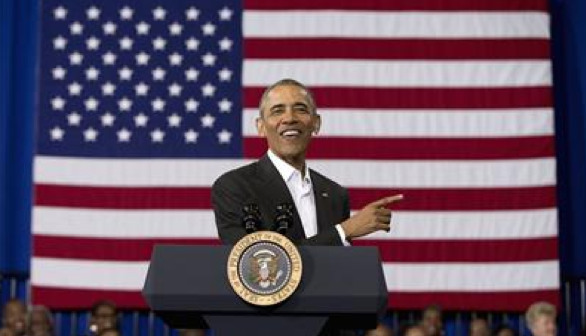The State of the Presidency: Spent
President Obama’s Tuesday night address to Congress was less about the state of the union than the state of the presidency. And the state of this presidency is spent.
The signs of intellectual exhaustion were everywhere. Consider just three. After taking credit for success in Syria, raising American stature abroad and prevailing against the Islamic State — one claim more surreal than the next — Obama was forced to repair to his most well-worn talking point: “If you doubt America’s commitment — or mine — to see that justice is done, just ask Osama bin Laden.”
Really? Five years later, that’s all you’ve got?
Indeed, it is. What else can Obama say? Talk about Crimea? Cite Yemen, Libya, Iraq, the South China Sea, the return of the Taliban?
“Surveys show our standing around the world is higher than when I was elected to this office,” Obama boasted. Surveys, mind you. As if superpower influence is a Miss Universe contest. As if the world doesn’t see our allies adrift, our enemies on the march and our sailors kneeling, hands behind their heads, in front of armed Iranians, then forced to apologize on camera. (And our secretary of state expressing appreciation to Iran after their subsequent release.)
On the domestic side, Obama’s agenda was fairly short, in keeping with his lame-duck status. It was still startling when he worked up a passion for a great “new moonshot”: curing cancer.
Is there a more hackneyed national-greatness cliche than the idea that if we can walk on the moon . . . ? Or a more hackneyed facsimile of vision than being “the country that cures cancer”? Do Obama’s speechwriters not know that it was Richard Nixon who first declared a war on cancer — in 1971?
But to see just how bare is the cupboard of ideas of the nation’s most vaunted liberal visionary, we had to wait for the stunning anachronism that was the speech finale. It was designed for inspiration and uplift. And for some liberal observers, it actually worked. They were thrilled by the soaring tones as Obama called for, yes, a new politics — a post-partisan spirit of mutual understanding, rational discourse and respect for one’s opponents.
Source: Charles Krauthammer, http://humanevents.com
 Listen Online
Listen Online Watch Online
Watch Online Find a Station in Your Area
Find a Station in Your Area







 Listen Now
Listen Now Watch Online
Watch Online
